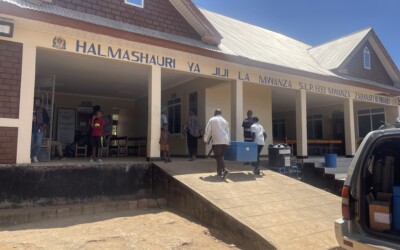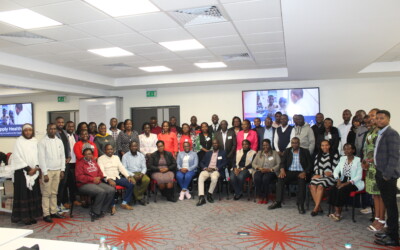Introduction
Data culture is a collective behaviour and beliefs of people who value, practice and encourage the use of data to inform actions and improve decision making. Increasingly, countries in Sub Saharan Africa, including Tanzania and Kenya, have been digitalizing health and supply chain information management systems to ensure they have high quality and timely data. However, far too often, data is kept in reports or databases and is not used effectively in operational decisions, policy and program development, strategic planning or advocacy due to various challenges. A data use culture allows teams to make timely and accurate decisions. inSupply Health has been at the forefront of promoting data use culture by demonstrating practical ways to use data and involving the data users in identifying barriers to using data and developing new tools and practices to enhance vaccine potency.
Background
Ministries of Health with their respective immunization programs in both Tanzania (Immunization and Vaccine Development) and Kenya (National Vaccine Immunization Program) along with inSupply Health conducted a Human-Centered Design (HCD) research to generate insights on accessibility and usability of Cold Chain Equipment (CCE) temperature monitoring data through remote temperature monitoring (RTM) devices in immunization programs across all levels. The research aimed to understand health care workers’ preferences and challenges by reviewing current CCE data indicators and their visuals. The insights generated were used to co-design actionable vaccine CCE temperature monitoring indicators and easy to understand visuals that can be integrated into a dashboard, all with the goal of improving vaccine potency and management.
Challenges
When the CCE temperature data is not tracked daily, it is not possible to monitor vaccine temperatures in a timely manner, resulting in wastage. Lack of direct and timely access to vaccine CCE temperature monitoring data is a challenge for both Tanzania and Kenya. For the Sub County level in Kenya, health care workers were limited to only accessing data through reports at the end of the month, which makes it difficult to quickly adapt and make decisions in a timely manner. Others did not have login credentials to the RTM dashboards or forgot their credentials and were not able to follow up on it. Health care workers at the national level receive data via multiple dashboards making it difficult to follow up on temperature alarms and keep track of the login credentials. Even if they do check the dashboards, the data is difficult to interpret and cannot be shared with others. While participants had access in Tanzania, it was limited to facilities with RTMs leaving those without RTMs with only uptime data.
Additionally, a lack of training on CCE indicators and its visuals, low motivation, and lack of knowledge transfer limits the use of data for decision making. Data discrepancies between actual numbers in health facilities and those submitted in the system are a result of lack of training in understanding the indicators, interpreting the visuals, and filling out the reports. The RTM devices require experts for any repair and maintenance services and when these devices break down or are not set up properly, health care workers are unable to fix them. Slow response to maintenance and repair requests demotivate health care workers to report and use data. There is also a lack of knowledge transfer when staff turnovers occur.
All these challenges were identified using the HCD approach and while the systematic challenges cannot be addressed immediately and individually, the health care workers were able to recommend and consult on additional indicators to track and how the data visuals should look. The recommendations helped develop a more user-friendly mock RTM dashboards that will make it easy to make data driven decisions.
Conclusion
Building data culture starts at the top level, it is dependent on leaders who are willing to invest time, resources and set expectations for data use in decision making. However, each health care level plays a role which further complicates things as data and value generation problems are not limited to a single team or a single level. Teams that have been able to forge a data culture are those in which evidence generated through data informs decision making, and has become part of their DNA.


